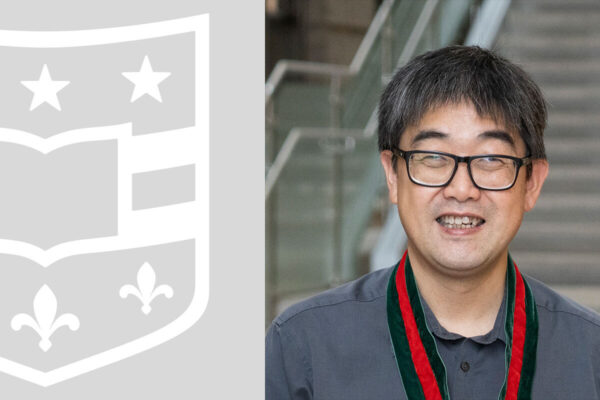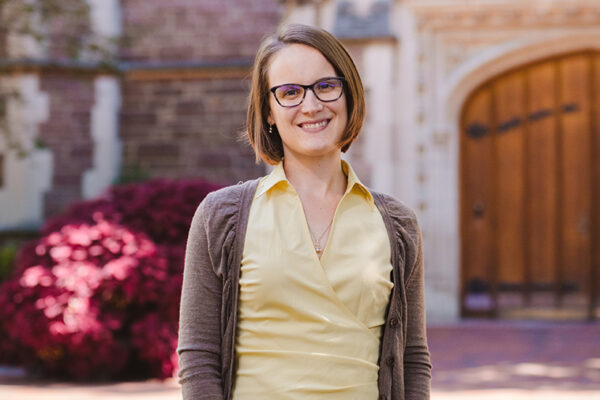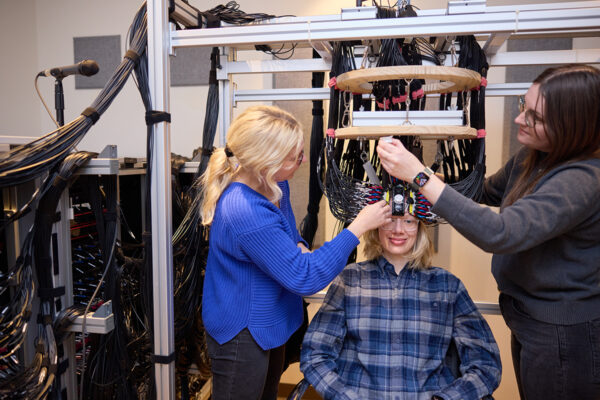Detailed molecular steps of blood clotting revealed in new study
A study in Nature led by Weikai Li at WashU Medicine reveals the molecular details of how vitamin K-dependent gamma carboxylase operates, a critical step in the blood clotting process.
Grant renewal funds research on longevity in mammals
WashU Medicine researcher Benjamin Garcia will receive $18.5 million from the National Institutes of Health (NIH) to study how long-lived mammals stay healthy into old age.
Students don’t learn the way they think they do
A new study reveals that students learn best through prediction activities, even though they don’t realize it. This idea is at the center of research published by biologist Elise Walck-Shannon and her co-instructors for an introductory genetics course in Arts & Sciences.
New approach reverses opioid overdoses more safely, rat study shows
Researchers at WashU Medicine led a study that offers a promising new way to reverse opioid overdoses without withdrawal symptoms.
Fogarty awarded fellowship for post-stroke imaging studies
SPIE, the international society for optics and photonics, has awarded the prestigious SPIE-Franz Hillenkamp Postdoctoral Fellowship in Problem-Driven Biomedical Optics and Analytics to Morgan Fogarty, a graduate student at WashU Medicine.
Myosin makes the moves to keep cell processes humming along
Biomedical scientists at Washington University in St. Louis and Duke University report new insights regarding the role of movements of molecules as drivers of condensation in plant cells.
A new era of biotech education
The Biotech Explorers Pathway, a first-year Ampersand Program in Arts & Sciences, uses biotechnology as the theme that immerses students in real-world science, according to a new career feature written by WashU authors.
Halvorsen advises on spirituality study
Cal Halvorsen, an associate professor at the Brown School, served as adviser on a CoGenerate survey on faith communities and engagement.
Eating disorders a hidden crisis on college campuses
Researchers at Washington University led a study of nearly 30,000 students that shatters misconceptions about eating disorders, a common and misunderstood condition.
A new approach to control light in photonic circuits
Researchers at WashU have developed a simple, efficient way to enable one-way light transmission in photonic chips.
View More Stories









